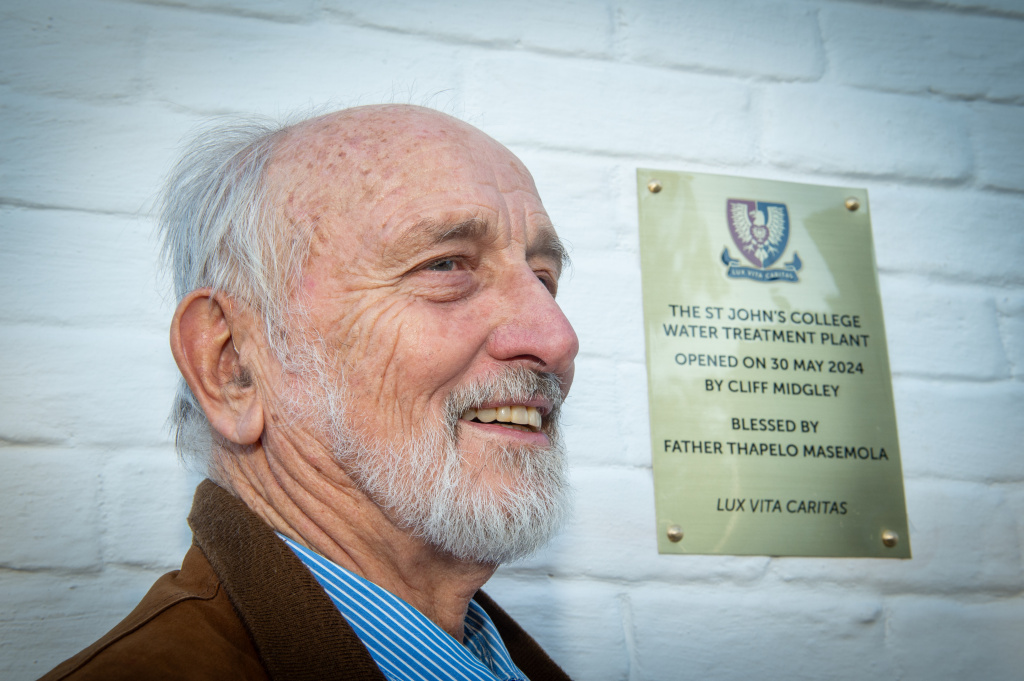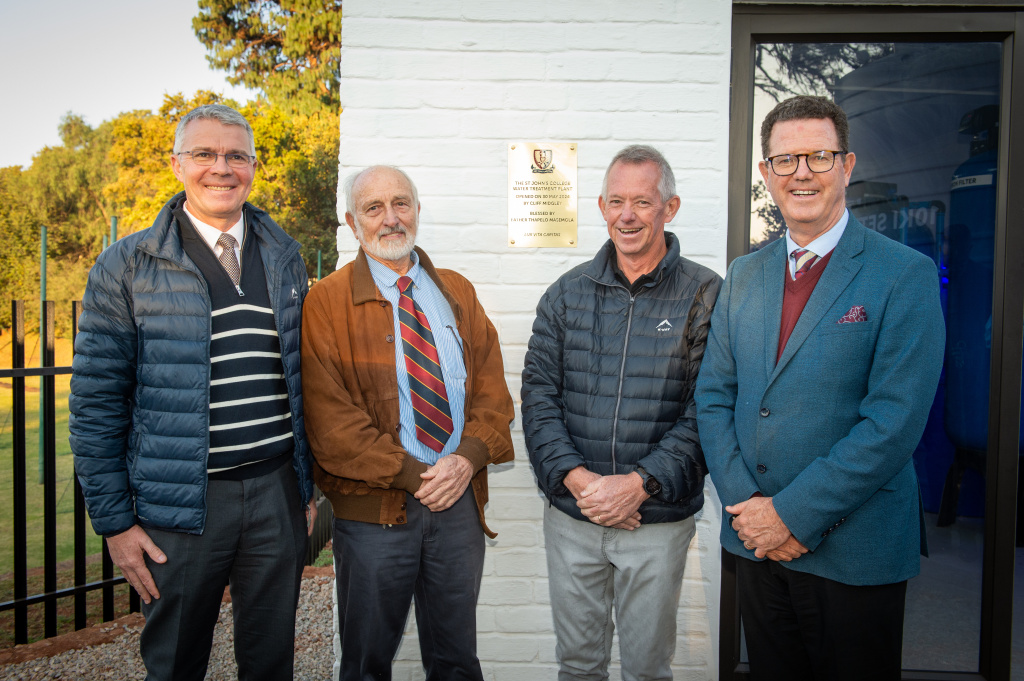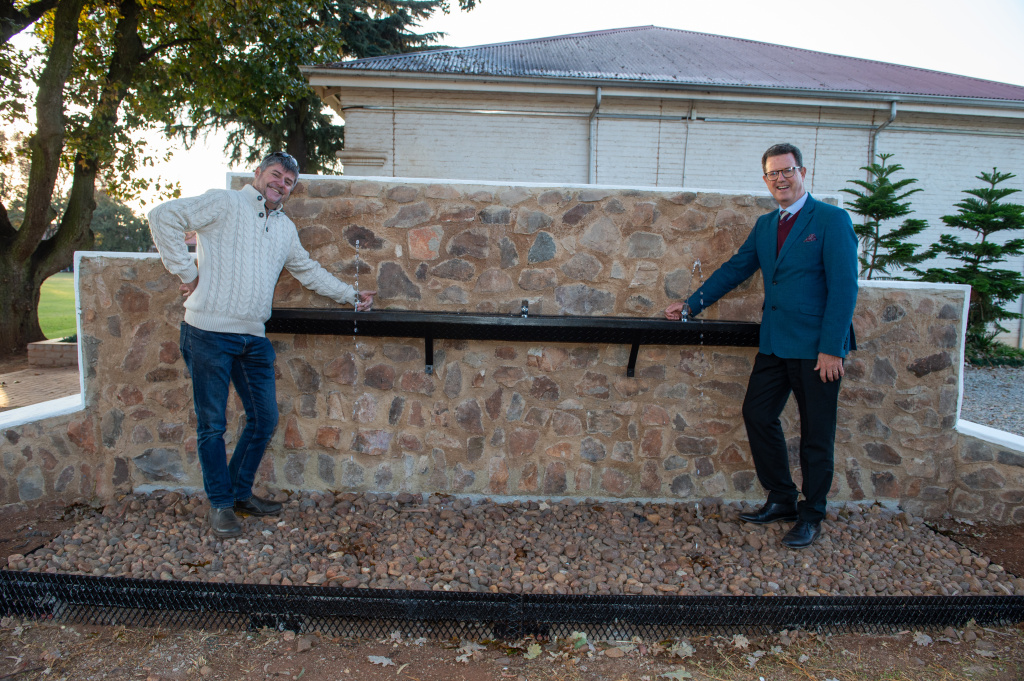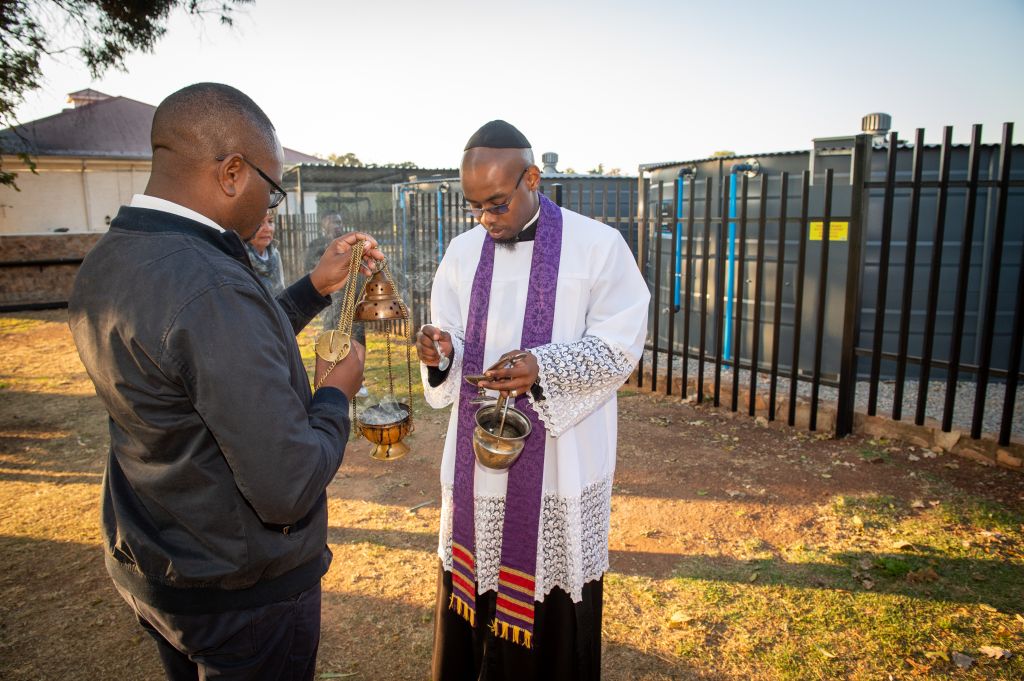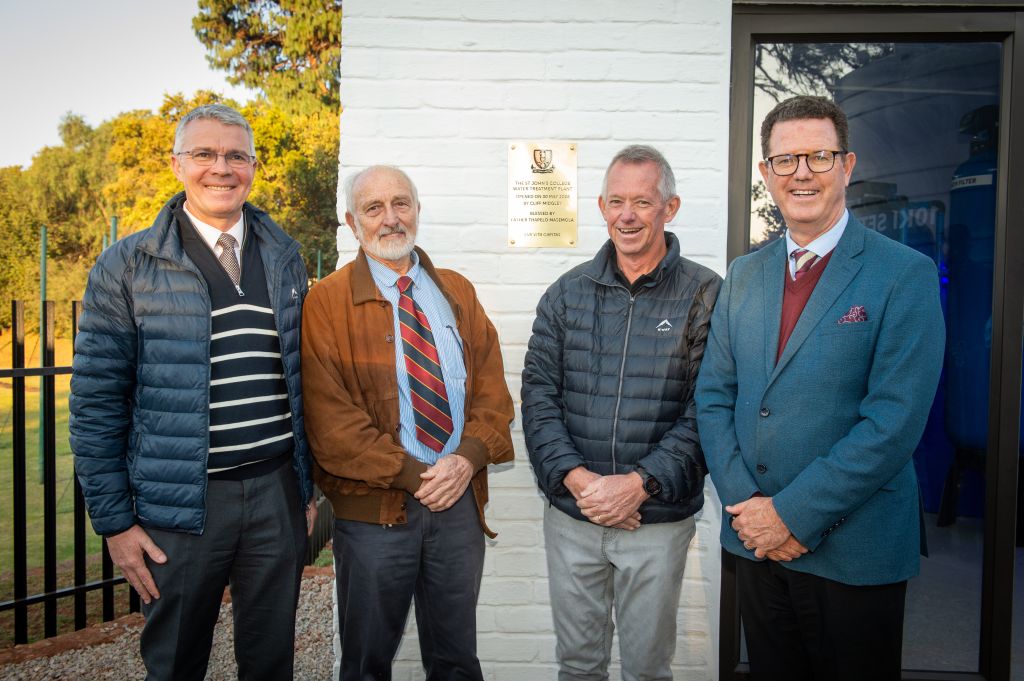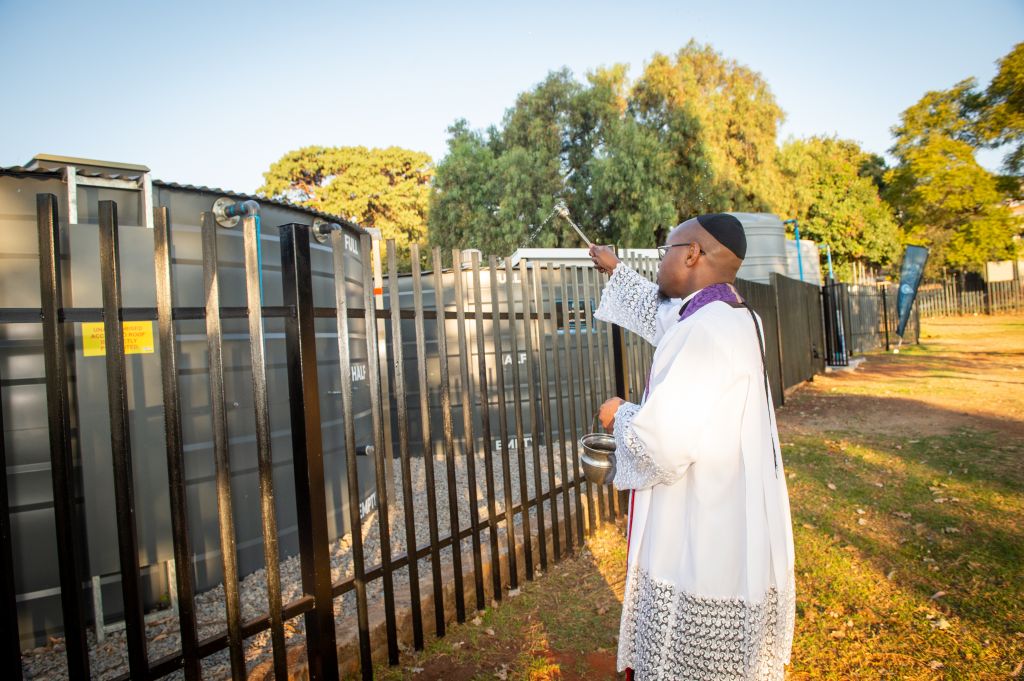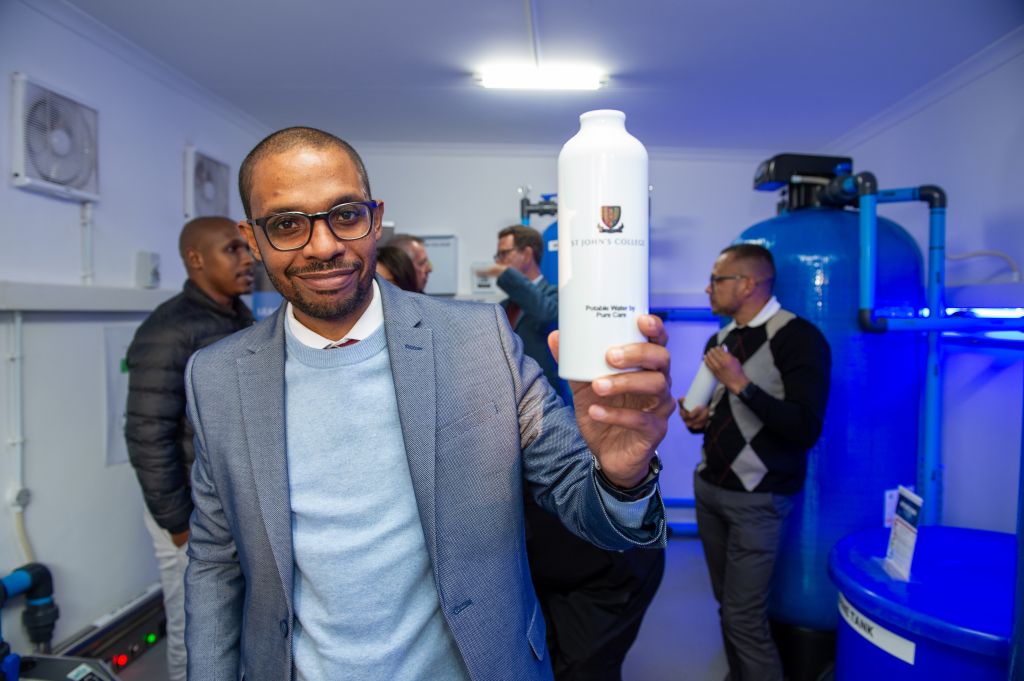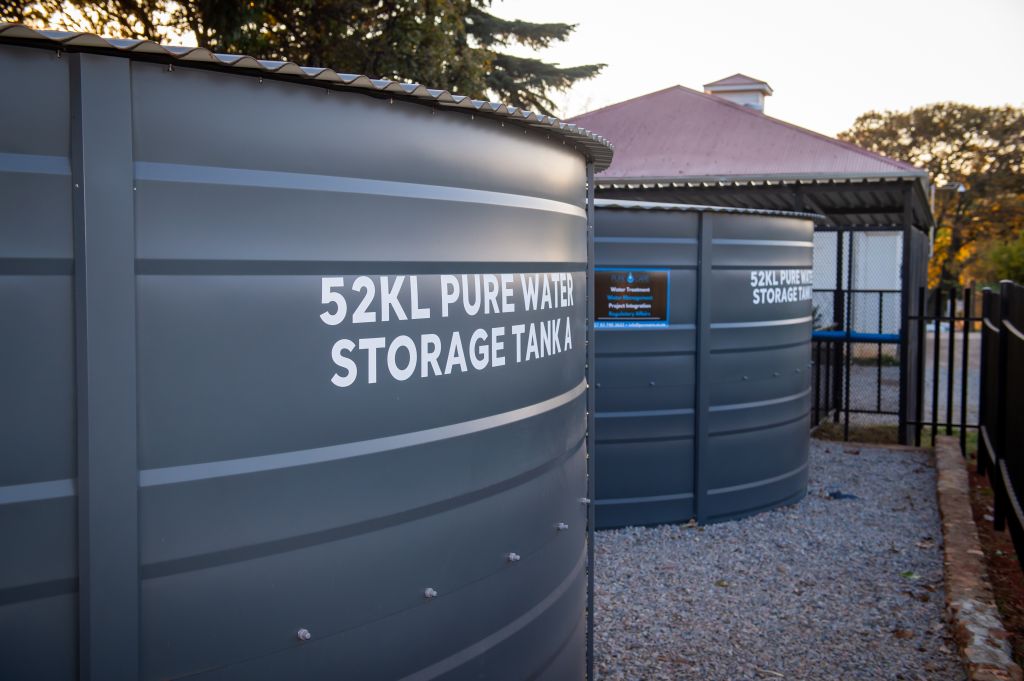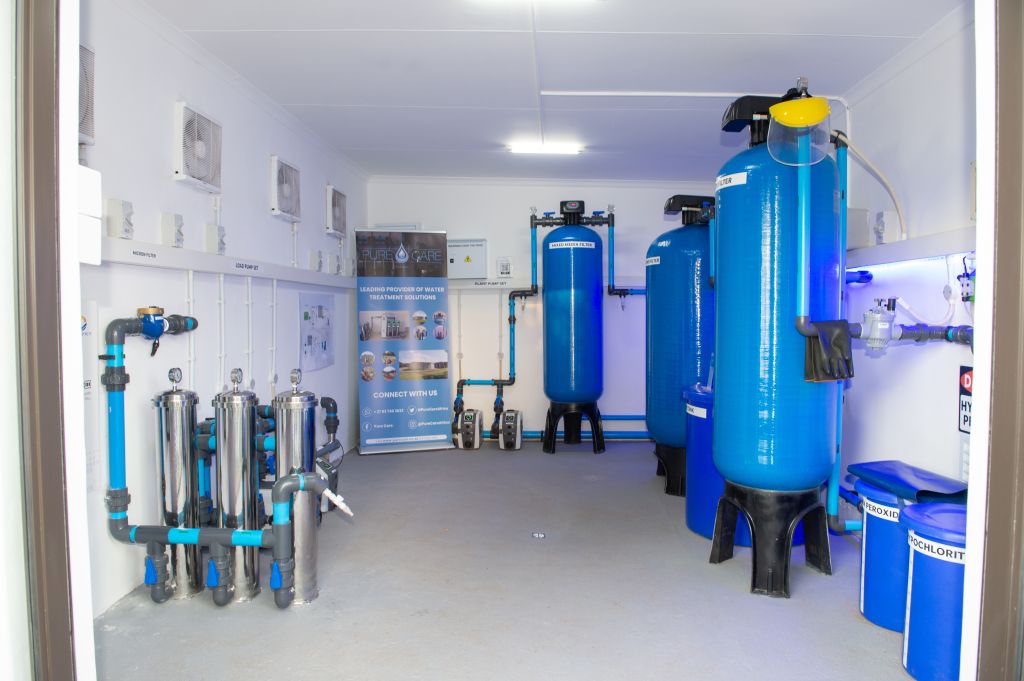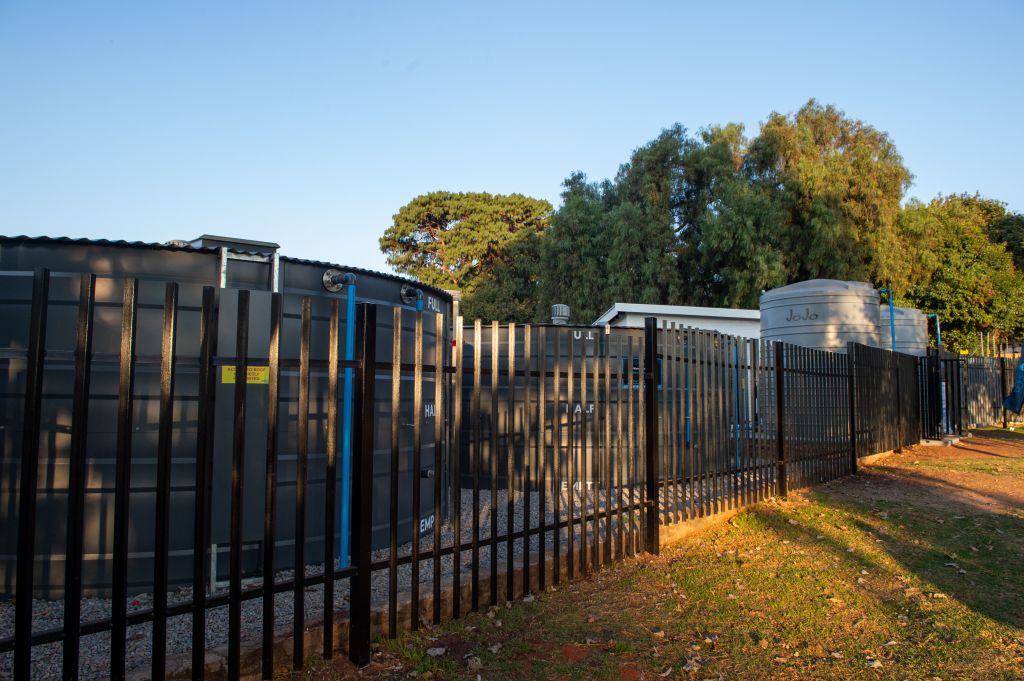An Integrated Approach to Water Security at St John’s College
It was with great pleasure that the St John's College Water Treatment Plant was opened by Cliff Midgley and blessed by the Revd Fr Thapelo Masemola on 30 May 2024. Cliff, a retired College Geography Teacher and Senior Housemaster has been associated with St John’s for over 50 years.
Johannesburg has faced a severe water crisis in 2024. Areas of the city's water supply system are teetering on the brink of collapse, and thousands of Johannesburg residents have been left without water for weeks at a time.
St John’s College has used borehole water for many decades, but the importance of integrating this water supply into a comprehensive water management strategy became more apparent as the supply of municipal water became less stable. In the 1950s, Professor DC Midgley, the Director of the Hydrological Research Unit, measured all of the surface and rainwater in South Africa and predicted the total population that this water could support. Sadly, some 70 years later, we are now at the stage where Joburg Water can no longer guarantee the supply or the quality of water reticulated in Johannesburg.
The College contracted water management company Pure Care to advise on a considered, long-term approach to the sustainability of the College’s water supply. Pure Care takes a holistic approach to water management, incorporating treatment, compliance, security, monitoring, analysis, cost-saving, and educational components.
After a period of consultation and analysis of water supply and requirements, the College decided to install a water-treatment plant and implement a water-management plan that would ensure its water supply was secure, accurately measured, compliant with legislation, and cost-effective.
The water-treatment plant project took 21 weeks and involved the laying of new pipes to establish a backup municipal connection, the installation of an irrigation system, two 50,000-litre storage tanks, and reduced pressure zone valves. Electricals were checked and upgraded, the old concrete reservoirs were cleaned and updated, and the new plant was roofed and fenced.
The plant is supported with a backup power system to keep it running during loadshedding and other power interruptions. The College maintains a connection to the municipal water supply as a failsafe should the plant or boreholes fail (an exceptionally rare occurrence).
The Department of Water and Sanitation monitors borehole use to gauge extraction levels, and the College also applied for and received a General Water Use license to ensure legislative compliance as part of the process.
The handover of the project to the College took place in April, and after a period of monitoring, testing, and analysis, the plant was officially launched on 30 May.
The new plant means that water is more secure, more sustainable, and less costly than before. Water treatment plants require a significant capital outlay but have a return on investment of just 24 to 36 months.
Both Pure Care and St John’s see an additional benefit of the project: using it as an opportunity to raise awareness of the importance of water conservation and management amongst students and staff. Elfas Zikhali from Pure Care says, “In my experience leading educational initiatives, I have noticed that a lot of people do not know as much about water as one might assume. At educational institutions, students, teachers, staff, and parents enjoy learning about their treatment plants and really find them fascinating. Such sessions give us an opportunity to raise awareness around the importance of water and why we shouldn’t waste it.”
In addition to taking steps to secure a sustainable, independent water supply, St John’s has set up a solar photovoltaic system, augmented by generators, to alleviate the effects of loadshedding. Recyclable waste materials are sorted onsite and collected, and food waste is processed by a supplier that uses a microbial process to turn it into compost.
Dave Vermeulen, St John’s College’s Head of Finance and Operations, says, “We’ve made some progress in ensuring we’re limiting our footprint and reliance on municipal services, but I think there’s still more to do, and space to be more intentional in terms of our sustainability goals. Sustainability also applies in a narrower sense: We have the best academics in the country, and we need to show that we’re also able to provide exceptional grounds and infrastructure in order to keep attracting students and setting an example for other institutions.”
Midgley remarked: "It is a tribute to the wisdom of the School leadership that the decision was made to utilise the two borehole supplies on the estate and to treat this water so that all at St John’s can be assured of clean, potable water at all times."

